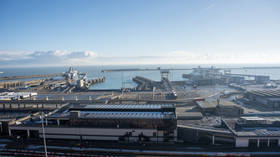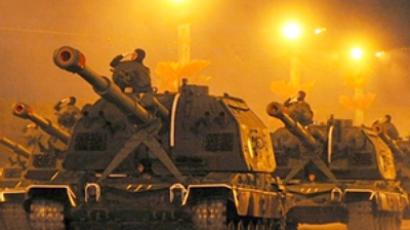Armenians across the world remember the Genocide
Armenians all over the world are commemorating as many as 1.5 million of their compatriots who fell victim to the Ottoman Empire genocide starting April 24, 1915.
“Crimes against humanity have no limitation period – neither in the memory of people, nor in terms of history. International recognition and condemnation of the Armenian Genocide is an issue of rectification of injustice for both the Republic of Armenia and its people,” says President Serzh Sargsyan’s address, as quoted by the country’s press service.
The events that were recorded by hundreds of eyewitnesses included numerous acts of state-sponsored massacres and cruel mass deportations. Ottoman officials, though, claimed they were retaliating against a pro-Russian insurrection.
“Today we are all paying honor to the memory of guiltless victims. The Armenian Genocide was planned and carried out by the Ottoman Empire at a national level. A huge part of our people was cold-bloodedly destroyed. And today, for those who survived the Great Massacre, for their descendants, and the whole nation, the Genocide is not only the real past, but also an indispensable part of the present, and of their fate,” the document adds.
Efforts to gain international recognition of the Genocide have been declared one of the priorities of Armenia’s foreign policy.
At the moment, it has been accepted as fact by 21 countries – including Russia, France, Italy, Germany, Belgium, Greece, Switzerland, Canada, and 42 states of America – as well as the European Parliament and the Vatican.
There is no consensus, though, on the number of the victims. The Republic of Turkey, the successor state of the Ottoman Empire, says only about 300,000 people died, and also does not accept the term 'genocide' regarding the events.
Western scholars agree on from five to six hundred thousand victims.
In 1967, the Armenian authorities erected a memorial at the Tsitsernakaberd hill in the capital of Yerevan to symbolize the people’s grief, and the revival of the nation.
On Friday, a memorial service will be held there with tens of thousands of people attending, as is usually the case.
Meanwhile, this time, the commemoration date comes just a day after a groundbreaking joint statement was made by Armenia and Turkey on creating a ‘roadmap’ to normalize bilateral relations.














